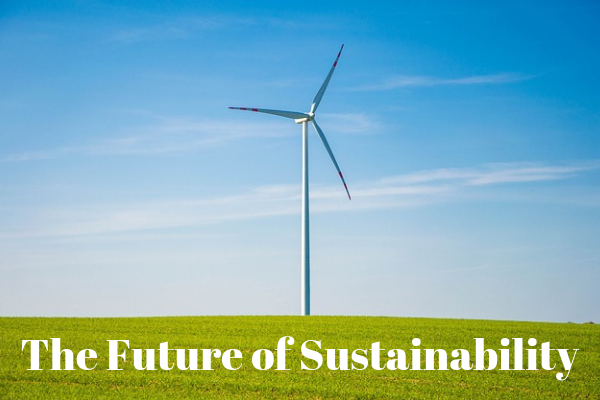
The Future of Sustainability
Read a summary using the INOMICS AI tool
The definition of sustainability is the ability to sustain change in a balanced way. It’s most commonly applied to keeping a harmony between the earth’s resources and our material needs. It’s a way of ensuring that the human race doesn’t exploit the environment and ecology of our planet into a state of irreversible decline. It also covers economic and social issues, and the development of systems and processes that enable future generations to continue meeting their material needs, without destroying the ecosystem. This is also sometimes referred to as sustainable development.

In recent years, as the effects of pollution, global warming, deforestation and overuse of resources have become more apparent, there has been a growing awareness of sustainability and increasing political will to follow a common ideal. Coronavirus may have accelerated this process, as once the disease has been contained the world's economies will have to be rebuilt, and many are suggesting that sustainability should be made front and centre. Certainly there has rarely been a more exciting time to be working in the field. This article will examine the current picture of sustainability across the world, and speculate as to where things may head in the coming years.
Sustainability Today
There’s no doubt that there are more environmental initiatives than there were in the 1990s, when sustainability came on the public and political radar. The 1992 Rio Earth Summit was the beginning of cooperation between more than 170 countries to sustainable development, conservation and environmental protection. Progress has been made in achieving these goals, but most researchers believe it is not enough. Mankind’s net effect on the ecology of our world is still a negative one. We are still destroying the planet at a growing rate. The speed of the destruction may have slowed slightly, but it is still worrying.
On a positive note, awareness among the public as a whole, primarily in the West, has improved. But more action is necessary. Since 1970:
- Mankind’s ecological footprint has outstripped the capacity of the Earth to provide. It’s estimated that 1.6 planets would be needed to meet the current demand for natural resources.
- The amount of greenhouse gases has doubled and polar icecap melting has continued to increase.
- 48% of the world’s rainforests have been destroyed
The main problem is that our market economy tends to reward unsustainable activities and material wastefulness. This is combined with the fact that legislation and political policies haven’t gone far enough and are inconsistent across the globe. For instance, targets set during the Kyoto agreement to reduce greenhouse emissions haven’t been reached and strategies have been inconsistently implemented.
In recent years, problems of social and political division have also increased, meaning that notable countries have removed themselves from the latest climate change agreement made in Paris in 2015. Recent research from Germany has shown a 75% decrease in flying insects over the past 25 years, likely due to pesticide use and the destruction of their natural habitats. This data can be seen as a strong marker of environmental decline.The picture isn’t entirely bleak however. There have been widespread advances in the use of renewable energy sources, especially across Europe, with solar and wind generated power becoming more affordable and efficient.
Sustainability into the next decade
The next several years are going to be pivotal in determining our planet's future, particularly given the opportunity COVID-19 has offered for human kind to completely restructure the world's economies. A 2018 report from the Forum for the Future, Future of sustainability report 2018: living in nonlinear times, highlighted several areas of opportunity for sustainable growth over the coming years.
Transport
Many nations have recently committed to reduce, and eventually eliminate, the number of combustion engines on the road, in favour of electric vehicles (EVs). For instance, the UK has committed to banning the sale of fossil-fuelled vehicles by 2040 and have pledged £400 million to support zero-emission vehicles over the next couple of years. India, France and Norway are among thirteen other countries to have made similar commitments.
Plastics
Plastic waste is a huge environmental issue. It has a destructive effect on marine life and it also eats into the Earth’s depleting oil resources. Countries across the world, especially in Europe, have committed to reducing plastic waste and imposing restrictions on packaging.
Regenerative agriculture
There is likely to be a move towards more sustainable farming methods in the coming years, that rely less on pesticides and fertilizers, creating less impact on the water cycle and increasing biodiversity.
Online retail
As sales in traditional stores decline and internet retail takes over, there is an opportunity for retailers to build more sustainable retail models. The online retail model is more flexible, allowing potential for shorter supply chains, locally sourced materials and a reduction in packaging and transportation. As consumers become more environmentally aware, businesses that embrace ethical and sustainable methods are likely to prosper. Other areas that the report identified were the blockchain that can help secure supply chain records, amongst other things, and space technology which will give us the opportunity to more effectively gather and analyse data on our planet.
-
- Konferenz
- Posted 3 days ago
15th International Conference "Modern Building Materials, Structures and Techniques"
Between 12 May and 16 May in Vilnius, Litauen
-
- Konferenz
- Posted 2 weeks ago
Emerging Macroeconomic, Financial, and Environmental Policy Challenges in an Era of Policrises and Rising Uncertainties
Between 23 Mar and 24 Mar in Milan, Italien
-
- Professor Job
- Posted 1 week ago
Professor of Economics, Tenured - Tenure/Track (Open-Rank)
At New York University Abu Dhabi in Vereinigte Arabische Emirate









